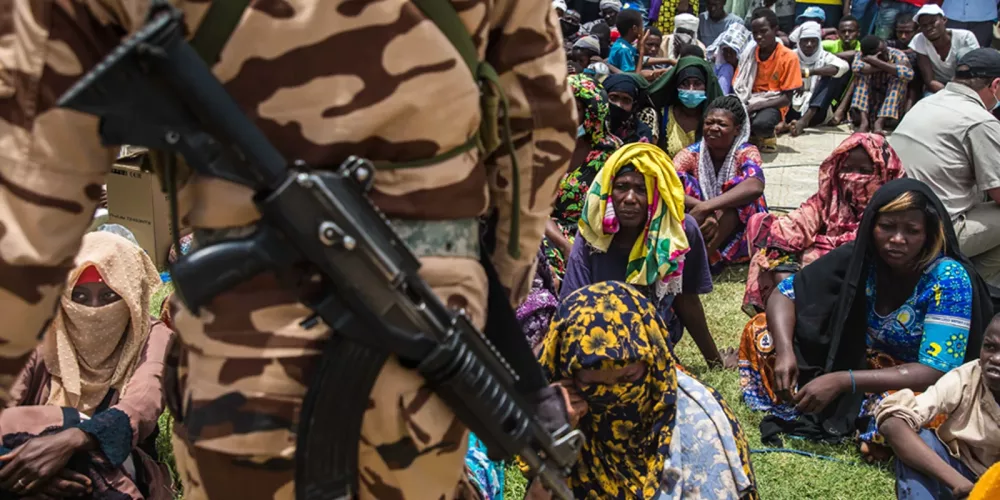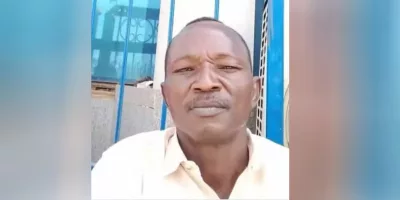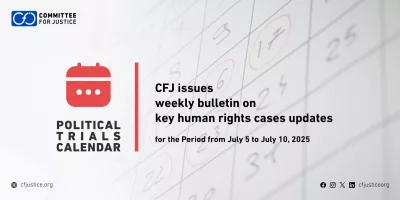The “Committee for Justice” (CFJ) stated that as part of its monitoring of human rights conditions in Chad, it has submitted a report to assist the Human Rights Committee in reviewing Chad’s compliance with the International Covenant on Civil and Political Rights (ICCPR) during its 143rd session, scheduled for March 2025. The report focused on key human rights issues in Chad, including the rule of law, civil and political rights, and the protection of vulnerable groups.
The report highlighted the continuous deterioration of fundamental freedoms in Chad due to political instability, a restrictive legal framework, and systematic repression of opposition groups. The Chadian authorities frequently resort to declaring a state of emergency under the pretext of security concerns. However, these measures disproportionately restrict fundamental freedoms, particularly through the use of emergency laws to suppress opposition groups and peaceful protests.
The report also shed light on the expanded powers granted to the National Security Agency (ANS) in January 2017, which enabled it to target human rights defenders under the pretext of national security. In 2017 alone, more than 40 activists received anonymous phone threats warning them against speaking out against the authorities.
In 2022, protests erupted in the capital, N’Djamena, and other cities over the extension of the transitional period for the military council. These protests were met with excessive use of force by security forces, resulting in the deaths of numerous demonstrators, the arrest of hundreds, and reports of torture and ill-treatment.
Additionally, the report examined the lack of judicial independence in Chad, highlighting how the judiciary suffers from political interference, corruption, and lack of autonomy, which undermines citizens’ right to a fair trial. Political opponents and activists have been arbitrarily detained, with courts failing to uphold due process rights and many detainees being denied access to legal representation.
Chad has also witnessed a widespread crackdown on civil society organizations, political opponents, journalists, and human rights defenders. The report documented that in 2016, online activist Tajadine Mohamed Babouri was arrested after criticizing the government’s mismanagement of public funds and was charged with threatening the constitutional order. That same year, social media platforms were blocked, and many government-critical websites were banned until 2017.
In October 2022, thousands protested in N’Djamena and other cities against the military government’s failure to transfer power to a civilian government. These demonstrations were violently suppressed, with security forces using excessive force, leading to 125 deaths and 517 injuries.
The report also noted that arbitrary detention, enforced disappearances, and extrajudicial killings have become widespread practices in Chad, particularly against opposition figures, activists, and human rights lawyers. These individuals face numerous restrictions that impede their ability to work safely, including torture, arbitrary arrests, and judicial harassment. The United Nations Committee Against Torture (CAT) has criticized the Chadian authorities for their use of torture under the pretext of addressing security challenges, as well as for the harsh prison conditions, particularly in Koro Toro prison.
Regarding the protection of refugees and internally displaced persons (IDPs), the report emphasized that Chad hosts large numbers of refugees and IDPs, particularly due to the conflict in Sudan. However, refugees and IDPs in Chad face severe restrictions on movement and harsh living conditions.
In 2025 alone, over 10,000 Sudanese refugees crossed into Chad in January, further straining the country’s limited resources. Many refugees lack adequate shelter and access to essential healthcare, exacerbating poor living conditions and increasing their vulnerability to disease.
In conclusion, CFJ recommends the establishment of legislative and judicial oversight mechanisms to prevent the abuse of emergency powers to undermine fundamental rights in Chad. The committee also urges the authorities to undertake comprehensive judicial reforms to ensure the independence and integrity of the judiciary, including strengthening the autonomy of judicial bodies.
CFJ further stresses the need for Chadian authorities to end the repression of civil society, repeal restrictive laws that limit fundamental freedoms, and establish an independent body to investigate human rights violations committed by security forces, ensuring that perpetrators are held accountable. Additionally, the committee calls for the government to align its refugee policies with international protection standards and to allocate sufficient resources to humanitarian agencies.
Finally, CFJ urges the United Nations Human Rights Committee to raise the issues outlined in the report during Chad’s 143rd review session and to call on Chadian authorities to implement significant legal and institutional reforms in line with their obligations under the International Covenant on Civil and Political Rights (ICCPR).






